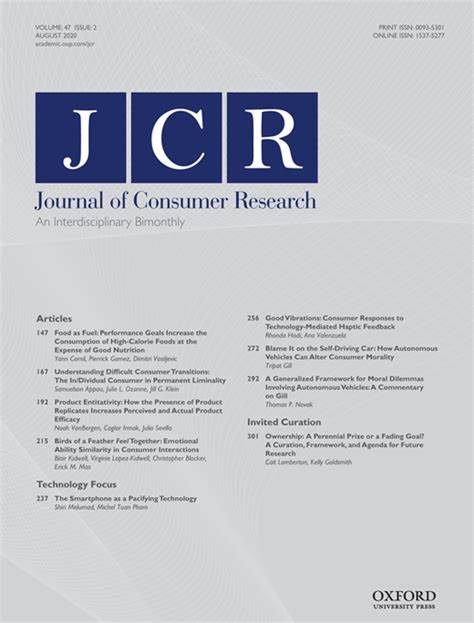英特尔内部:有效口号的语言特性
IF 6.4
1区 管理学
Q1 BUSINESS
引用次数: 1
摘要
营销人员如何创造消费者喜欢和记住的口号?我们通过分析广告语的词汇、语义和情感特性是如何影响广告语的喜好和记忆来回答这个问题的。通过对800多个品牌口号的大型相关性研究、实验室实验、生物识别眼动追踪实验和实地研究,我们发现了使口号有效的单词属性。我们预测并发现,使广告语更容易处理(即更流畅)的语言特性会导致广告语更讨人喜欢,但不那么容易记住,而降低处理流畅性的语言特性会导致广告语不那么讨人喜欢,但更容易记住。在我们的多方法调查中,参与者对较短、省略品牌名称、使用语言上频繁、感知上不同和抽象的词语的口号表现出更有利的态度。相比之下,参与者更有可能记住较长的标语,包括品牌名称,并使用语言上不常见的、具体的、感知上不那么明显的词语。最后,我们为营销人员提供实用的建议,以最佳的选词策略,并提供可操作的指导,以创造既讨人喜欢又令人难忘的口号。本文章由计算机程序翻译,如有差异,请以英文原文为准。
Intel Inside: The Linguistic Properties of Effective Slogans
Abstract How can marketers create slogans that consumers like and remember? We answer this question by analyzing how the lexical, semantic, and emotional properties of a slogan’s individual words combine to influence slogan liking and slogan memory. Through a large correlational study with over 800 brand slogans, laboratory experiments, a biometric eye-tracking experiment, and a field study, we unearth the word properties that make slogans effective. We predict and find that linguistic properties that make a slogan easier to process (i.e., more fluent) result in slogans that are more likable but less memorable, whereas linguistic properties that reduce processing fluency result in slogans that are less likable but more memorable. Across our multi-method investigation, participants indicated a more favorable attitude toward slogans that are shorter, omit the brand name, and use words that are linguistically frequent, perceptually distinct, and abstract. In contrast, participants were more likely to remember slogans that are longer, include the brand name, and use words that are linguistically infrequent, concrete, and less perceptually distinct. We conclude by offering marketers practical advice into optimal word-choice strategies and delivering actionable guidance for creating slogans that are either likable or memorable.
求助全文
通过发布文献求助,成功后即可免费获取论文全文。
去求助
来源期刊

Journal of Consumer Research
BUSINESS-
CiteScore
12.00
自引率
9.70%
发文量
53
期刊介绍:
Journal of Consumer Research, established in 1974, is a reputable journal that publishes high-quality empirical, theoretical, and methodological papers on a wide range of consumer research topics. The primary objective of JCR is to contribute to the advancement of understanding consumer behavior and the practice of consumer research.
To be considered for publication in JCR, a paper must make a significant contribution to the existing body of knowledge in consumer research. It should aim to build upon, deepen, or challenge previous studies in the field of consumption, while providing both conceptual and empirical evidence to support its findings.
JCR prioritizes multidisciplinary perspectives, encouraging contributions from various disciplines, methodological approaches, theoretical frameworks, and substantive problem areas. The journal aims to cater to a diverse readership base by welcoming articles derived from different orientations and paradigms.
Overall, JCR is a valuable platform for scholars and researchers to share their work and contribute to the advancement of consumer research.
 求助内容:
求助内容: 应助结果提醒方式:
应助结果提醒方式:


